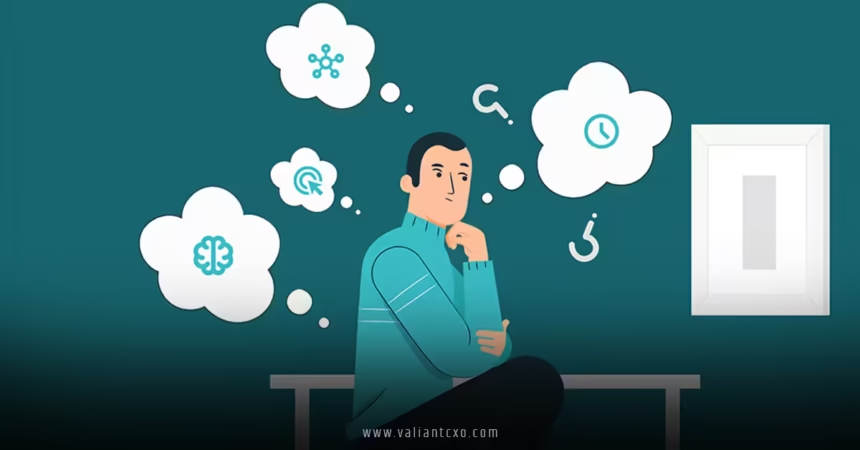How to improve critical thinking and problem-solving skills is a question that resonates with anyone striving to navigate life’s complexities with confidence and clarity. Whether you’re tackling a work project, making personal decisions, or simply trying to understand the world better, sharpening these skills can transform how you approach challenges. Critical thinking and problem-solving are like mental muscles—when exercised regularly, they grow stronger, helping you make better decisions, solve problems creatively, and communicate effectively. In this article, we’ll dive into practical, actionable strategies to enhance these skills, using a conversational tone to keep things engaging and relatable. Let’s explore how to improve critical thinking and problem-solving skills with a mix of mindset shifts, exercises, and real-world applications.
What Are Critical Thinking and Problem-Solving Skills?
Before we jump into how to improve critical thinking and problem-solving skills, let’s clarify what these terms mean. Critical thinking is the ability to analyze, evaluate, and synthesize information objectively to form a reasoned judgment. It’s about questioning assumptions, spotting biases, and looking at problems from multiple angles. Problem-solving, on the other hand, is the process of identifying a challenge, generating solutions, and implementing the best one. Together, they form a powerhouse duo that helps you tackle obstacles with logic and creativity.
Think of critical thinking as the detective work—piecing together clues, questioning motives, and uncovering truths. Problem-solving is like building a bridge—you’ve identified the gap (the problem), and now you’re constructing a way to cross it. Both skills are interconnected, and improving one often boosts the other. So, how do you level up? Let’s break it down.
Why Improving Critical Thinking and Problem-Solving Skills Matters
How to Improve Critical Thinking and Problem-Solving Skills : Why should you care about how to improve critical thinking and problem-solving skills? In today’s fast-paced, information-heavy world, these skills are your compass. They help you cut through the noise of misinformation, make informed decisions, and solve problems efficiently. Whether you’re a student, professional, or entrepreneur, strong critical thinking and problem-solving skills can:
- Boost your career by making you a more effective decision-maker.
- Enhance relationships through better communication and conflict resolution.
- Help you navigate life’s uncertainties with confidence.
Without these skills, you might find yourself stuck in indecision, swayed by biases, or overwhelmed by challenges. Ready to take control? Here’s how to improve critical thinking and problem-solving skills with practical steps.
How to Improve Critical Thinking Skills
Embrace Curiosity Like a Child
How to Improve Critical Thinking and Problem-Solving Skills : Curiosity is the spark that ignites critical thinking. Kids ask “why” a hundred times a day—adults, not so much. To improve critical thinking and problem-solving skills, channel that childlike wonder. Ask questions about everything. Why does this process work this way? What happens if I try a different approach? Curiosity pushes you to dig deeper, challenge assumptions, and uncover new perspectives.
Try this: Next time you read an article or hear a claim, pause and ask, “What’s the evidence for this?” or “Could there be another explanation?” This habit trains your brain to think critically rather than accept information at face value.
Practice Active Listening
Ever notice how easy it is to zone out during a conversation? Active listening—fully engaging with what someone is saying—sharpens your ability to analyze and evaluate information. It’s a cornerstone of how to improve critical thinking and problem-solving skills. When you truly listen, you pick up on nuances, identify inconsistencies, and ask better questions.
Here’s a tip: In your next conversation, focus on understanding the speaker’s perspective before responding. Paraphrase what they said to confirm your understanding. This not only builds empathy but also trains you to process information critically.
Challenge Your Assumptions
Assumptions are sneaky. They creep into our thinking and shape our decisions without us noticing. To improve critical thinking and problem-solving skills, you need to spot and question these mental shortcuts. For example, if you assume a coworker’s idea won’t work because it’s “too out there,” you might miss a brilliant solution.
Try this exercise: Write down three assumptions you hold about a current problem. Then, ask yourself, “What if the opposite were true?” This flips your perspective and opens new possibilities.
Engage in Reflective Thinking
Reflection is like a mental gym for critical thinking. It involves stepping back to analyze your thoughts, decisions, and outcomes. To improve critical thinking and problem-solving skills, set aside time each week to reflect. What went well in a recent decision? What could you have done differently?
Journaling is a great tool for this. Write about a recent challenge, your thought process, and the outcome. Over time, you’ll spot patterns in your thinking and identify areas for growth.
How to Improve Problem-Solving Skills
Break Problems into Smaller Pieces
Big problems can feel like mountains—intimidating and immovable. The trick to improving critical thinking and problem-solving skills is to break problems into manageable chunks. Think of it like eating a pizza: You don’t shove the whole thing in your mouth; you take it slice by slice.
For example, if you’re tasked with improving team productivity, don’t tackle it all at once. Break it down: Identify bottlenecks, brainstorm solutions for each, test one solution, and evaluate. This structured approach makes problems less overwhelming and easier to solve.
Brainstorm Multiple Solutions
When faced with a problem, your first idea isn’t always the best. To improve critical thinking and problem-solving skills, train yourself to generate multiple solutions before choosing one. This sparks creativity and helps you avoid settling for mediocre fixes.
Try the “Five Solutions Rule”: For any problem, come up with at least five potential solutions, even if some seem far-fetched. Then, evaluate each one based on feasibility, impact, and resources. This exercise stretches your creative muscles and builds confidence in your problem-solving abilities.
Learn from Failure
Failure isn’t the opposite of success—it’s part of it. Every misstep teaches you something about how to improve critical thinking and problem-solving skills. Instead of fearing failure, embrace it as a learning opportunity. Analyze what went wrong, why it happened, and how you can avoid it next time.
For instance, if a project flopped, don’t just move on. Ask: Was the goal unclear? Did I overlook a key detail? This reflective approach turns setbacks into stepping stones.
Collaborate with Others
No one solves problems in a vacuum. Collaborating with others brings fresh perspectives and ideas. To improve critical thinking and problem-solving skills, seek out diverse viewpoints. Talk to colleagues, friends, or mentors who think differently than you do.
Try this: Next time you’re stuck, explain the problem to someone else and ask for their input. Their perspective might reveal a solution you hadn’t considered. Plus, explaining the problem out loud often clarifies your own thinking.
Practical Exercises to Boost Both Skills
Play Strategy Games
Games like chess, Sudoku, or even escape room challenges are fun ways to improve critical thinking and problem-solving skills. They force you to think several steps ahead, anticipate outcomes, and adapt to changing scenarios. Plus, they’re a great way to unwind while sharpening your mind.
Practice Scenario Analysis
Scenario analysis is like mental time travel. Pick a real-world problem and imagine different outcomes based on various decisions. For example, if you’re deciding whether to take a new job, map out the best-case, worst-case, and most likely scenarios. This exercise hones your ability to weigh risks and rewards—a key part of how to improve critical thinking and problem-solving skills.
Read Diverse Perspectives
Reading books, articles, or blogs from different fields exposes you to new ways of thinking. To improve critical thinking and problem-solving skills, dive into topics outside your comfort zone. A business professional might read about psychology, while a teacher might explore technology trends. This broadens your mental toolkit and sparks creative solutions.
Join a Debate Club
Debating isn’t just about arguing—it’s about constructing logical arguments and spotting flaws in others’. Joining a debate club or engaging in friendly debates with friends sharpens your ability to think critically under pressure. It’s a dynamic way to improve critical thinking and problem-solving skills while having fun.
How to Apply These Skills in Everyday Life
At Work
In the workplace, knowing how to improve critical thinking and problem-solving skills can set you apart. Use these skills to analyze data, streamline processes, or resolve conflicts. For example, if your team is struggling with a project, apply critical thinking to identify the root cause and problem-solving to propose actionable solutions.
In Personal Decisions
Life is full of tough choices—buying a house, choosing a career path, or managing finances. To improve critical thinking and problem-solving skills, approach these decisions systematically. Gather information, weigh pros and cons, and consider long-term impacts. This reduces impulsivity and leads to better outcomes.
In Relationships
Strong critical thinking and problem-solving skills can improve how you communicate and resolve conflicts. Instead of reacting emotionally during an argument, pause, reflect, and consider the other person’s perspective. This empathetic approach fosters understanding and strengthens bonds.
Common Obstacles and How to Overcome Them
Overthinking
Overthinking can paralyze decision-making. To improve critical thinking and problem-solving skills, set time limits for decisions. For small choices, give yourself 10 minutes. For bigger ones, set a deadline of a day or two. This prevents analysis paralysis and keeps you moving forward.
Confirmation Bias
We all lean toward information that confirms our beliefs. To counter this, actively seek out opposing viewpoints. If you’re researching a topic, read articles from different perspectives. This habit strengthens your critical thinking by exposing you to the full picture.
Lack of Confidence
Doubting your abilities can hold you back. To improve critical thinking and problem-solving skills, start small. Tackle a minor problem, like organizing your workspace, and build from there. Each success boosts your confidence and prepares you for bigger challenges.
Resources to Support Your Journey
To dive deeper into how to improve critical thinking and problem-solving skills, check out these high-authority resources:
- Harvard Business Review offers insights on decision-making and problem-solving in professional settings.
- Coursera provides online courses on critical thinking from top universities.
- MindTools has practical tools and exercises for sharpening cognitive skills.
Conclusion
Learning how to improve critical thinking and problem-solving skills is a game-changer for navigating life’s challenges. By embracing curiosity, questioning assumptions, breaking problems into manageable pieces, and learning from failure, you can sharpen your mental edge. These skills aren’t just for academics or professionals—they’re for anyone who wants to make smarter decisions, solve problems creatively, and live with confidence. Start small, practice consistently, and watch how these skills transform your approach to life. Ready to take the first step? Pick one strategy from this article and try it today!
FAQs
1. Why is it important to learn how to improve critical thinking and problem-solving skills?
Improving these skills helps you make better decisions, solve problems efficiently, and navigate complex situations with confidence, whether at work or in personal life.
2. What are some quick exercises to practice critical thinking?
Try playing strategy games, journaling about your decisions, or engaging in scenario analysis to boost your ability to think critically and solve problems.
3. How can I avoid overthinking while problem-solving?
Set time limits for decisions and focus on breaking problems into smaller, manageable steps to streamline your thought process and avoid paralysis.
4. Can collaboration help with how to improve critical thinking and problem-solving skills?
Yes! Collaborating with others brings diverse perspectives, sparks creativity, and helps you uncover solutions you might not have considered alone.
5. How long does it take to see improvements in critical thinking?
With consistent practice, you can see noticeable improvements in a few weeks. Daily habits like questioning assumptions or reflecting on decisions accelerate progress.
For More Updates !! : valiantcxo.com


